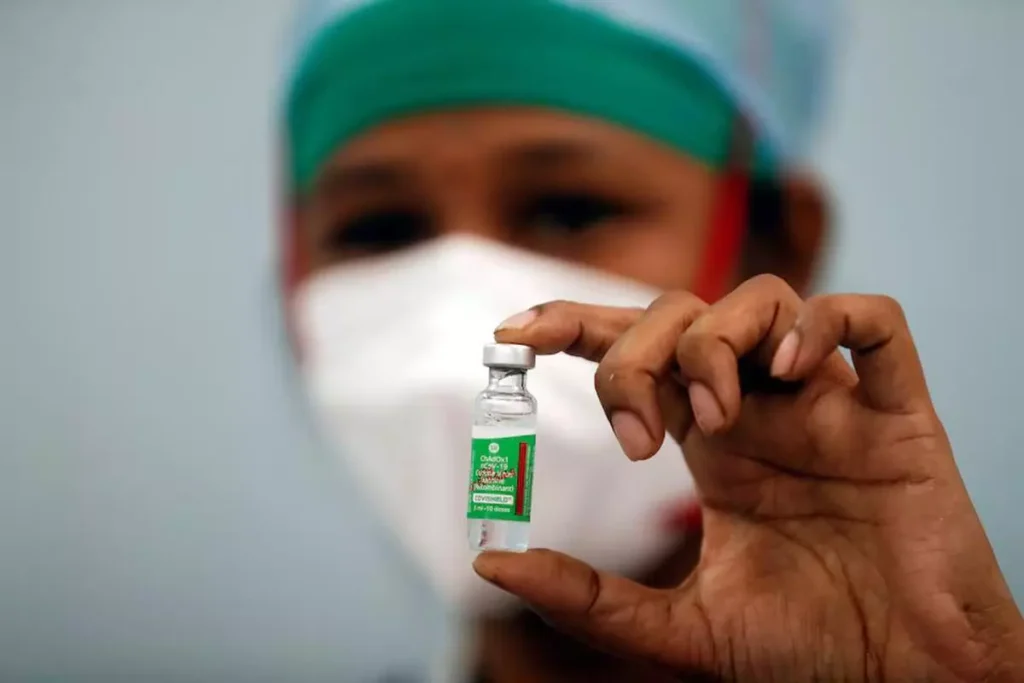AstraZeneca, a global pharmaceutical firm, has stated that their AZD1222 vaccination against Covid-19, known in India as Covishield, may induce low platelet counts and the formation of blood clots in “very rare” situations.

AstraZeneca has acknowledged a relationship between the vaccination and Thrombosis with Thrombocytopenia Syndrome (TTS), a medical disorder characterized by unusually low platelet counts and the production of blood clots.
During the coronavirus pandemic, AstraZeneca licensed its vaccine formula to the Pune-based vaccine manufacturer Serum Institute of India (SII) for the production of Covishield. Over 175 crore doses of Covishield have been delivered in India.
What prompted AstraZeneca to submit this submission? What is known regarding vaccinations and TTS? And should Indians who received Covishield shots be concerned?
What precisely did AstraZeneca said?
AstraZeneca discussed TTS in court documents following a lawsuit filed against the corporation in the United Kingdom. The pharmaceutical company is being sued for health claims connected to the vaccine it created in partnership with the University of Oxford during the Covid-19 epidemic in 2020.
What are the symptoms of TTS?
TTS is related with a variety of symptoms, including shortness of breath, chest or limb pain, pinhead-sized red patches or bruising of the skin in a region other than the injection site, headaches, body numbness, and so on. TTS could indicate a reduction in blood flow due to coagulation.
According to the Johns Hopkins Medicine website, thrombosis can impede blood flow in both veins and arteries. Complications vary depending on where the thrombus is located. The most significant issues are stroke, heart attack, and severe breathing problems.”
Why are these worries surfacing now, four years after the outbreak?
These problems have already been reported. However, this is AstraZeneca’s first confirmation of the relationship between TTS and their vaccinations.
Prior to the Covid-19 vaccines being rolled out in India, the Indian government issued a fact sheet in January 2021 that specifically stated that Covishield (the Indian variant of AstraZeneca’s vaccine) should be given with “caution” to individuals with thrombocytopenia, a condition characterized by low platelet counts. Indians received two Covid vaccines: Covishield and Covaxin.
Then, in March 2021, France, Germany, Italy, the Netherlands, Denmark, Norway, Iceland, Austria and so on are temporarily suspended the use of the AstraZeneca vaccine due to a few occurrences of blood clotting.
The next month, the World Health Organization (WHO) stated that TTS was occurring in certain individuals following immunisations with Covishield and Vaxzevria.
However, the WHO said, “Based on the most recent available evidence, the risk of TTS with Vaxzevria and Covishield vaccinations appears to be very low. According to UK data, the risk is roughly four instances per million adults (1 case every 250,000) who receive the vaccine, although the rate is predicted to be approximately one per 100,000 in the European Union (EU).
Were there reports of blood clots in India as well?
In May 2021, the Indian government said that 26 probable thromboembolic incidents, or clot development in blood arteries, had been documented since Covishield was first used.
In the case of Covaxin, India’s indigenous vaccine produced by Bharat Biotech, “no potential thromboembolic events” had been documented.
According to the Ministry, “this risk (of blood clotting) is almost 70% lower in persons of South and Southeast Asian descent in comparison to those of European descent.”
In 2023, the WHO included vaccine-induced immune thrombotic thrombocytopenia (VITT) in its TTS classification.
